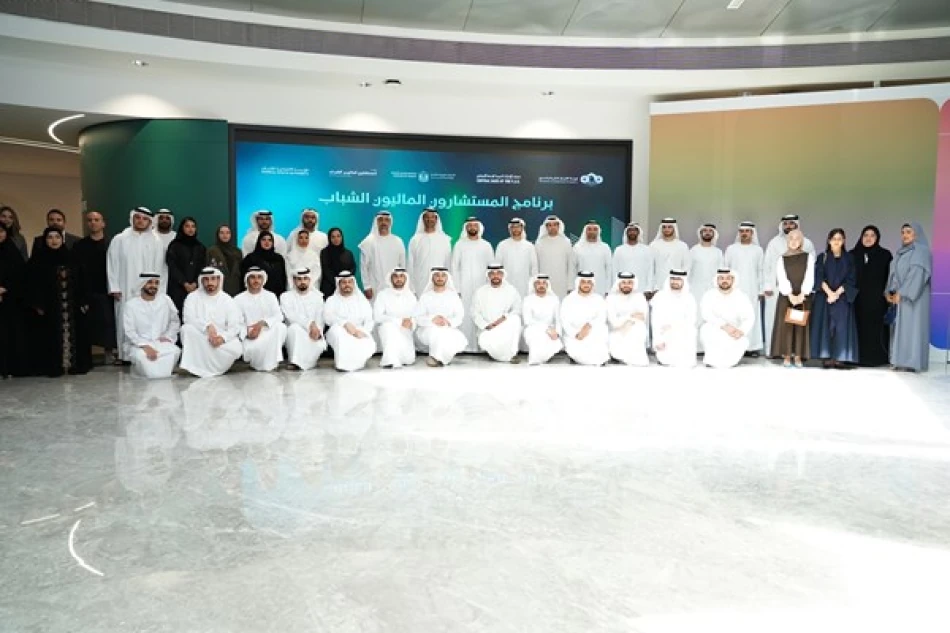
Young Financial Advisors Program Launches, Empowering the Next Generation of Finance Experts
UAE Launches Ambitious Financial Advisory Program to Cultivate Next Generation of Economic Leaders
The United Arab Emirates has launched a comprehensive Young Financial Advisors Program, bringing together 35 young Emiratis in a strategic initiative to build homegrown financial expertise. This four-month intensive program represents a coordinated effort between the Federal Youth Authority, Ministry of Finance, Central Bank, and Securities and Commodities Authority to bridge the critical gap between academic knowledge and practical market experience in the financial sector.
A Strategic Response to Economic Diversification Goals
The program launch, announced by Dr. Sultan bin Saif Al Neyadi, Minister of State for Youth Affairs, directly supports the UAE's Vision 2071 and the National Youth Agenda 2031. This timing is particularly significant as the UAE continues its aggressive economic diversification away from oil dependency, requiring a sophisticated financial services sector staffed by local talent.
The initiative addresses a common challenge faced by Gulf states: developing indigenous financial expertise rather than relying heavily on expatriate professionals. Similar programs in Singapore and Switzerland have proven successful in creating financial hubs with strong domestic advisory capabilities.
Comprehensive Training Architecture
Seven Core Competency Areas
The program covers seven essential domains that reflect modern financial advisory requirements:
Financial literacy fundamentals and monetary economics provide the theoretical foundation, while entrepreneurial finance and investment strategies offer practical application. The inclusion of financial regulations, content creation, and training skills demonstrates recognition that modern advisors must be communicators and educators, not just analysts.
Intensive Practical Experience
With over 170 training hours spread across 31 activities, the program emphasizes hands-on learning through interactive workshops, field visits, and a financial hackathon designed to foster innovative thinking. A two-week professional placement with the Ministry of Finance provides direct exposure to policy-making processes.
Market and Investment Implications
This initiative signals the UAE's intention to strengthen its position as a regional financial hub, particularly as competition intensifies with Saudi Arabia's NEOM project and Qatar's expanding financial services sector. For international investors, the program suggests the UAE is building the human capital infrastructure necessary for more sophisticated financial products and services.
The emphasis on entrepreneurial finance and innovation aligns with the UAE's broader startup ecosystem development, potentially creating more favorable conditions for venture capital and private equity operations in the region.
Regional Leadership in Financial Education
While countries like Bahrain and Kuwait have established financial training programs, the UAE's approach stands out for its integration across multiple government agencies and its focus on creating certified local advisors. This mirrors successful models in established financial centers like Hong Kong and Luxembourg, where local expertise underpins international competitiveness.
The program's structure suggests the UAE recognizes that financial advisory services will increasingly require cultural fluency and local market knowledge that expatriate advisors may lack, particularly as the domestic investor base grows more sophisticated.
Long-term Economic Impact
By investing in financial literacy and advisory capabilities, the UAE is positioning itself for the next phase of economic development where domestic savings and investment play larger roles. The program's graduates will likely influence how Emirati individuals and businesses approach saving, investing, and financial planning.
This domestic capacity building could reduce the UAE's reliance on foreign financial advisory services while creating export opportunities for Emirati expertise throughout the Arabic-speaking world. The timing coincides with increased regional interest in Islamic finance and sustainable investing, areas where culturally informed local advisors could provide competitive advantages.
Most Viewed News

 Layla Al Mansoori
Layla Al Mansoori






